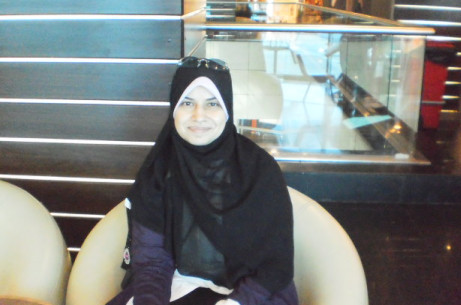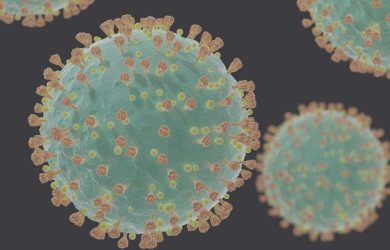
Mona Jebril has been coordinating a scholarship programme for female undergraduate students in Gaza.
A Gates Cambridge Scholar has been recognised for her work administering a scholarship programme for Palestinian women students.
Mona Jebril is interviewed in the current edition of the Kolmarian about her work administering the Kolmar Scholarship Programme, which aims to promote cross-cultural understanding and tolerance.
The Programme has helps four students a year who are studying for a BA in English at a local university. The scholarship is worth US$20,000 over a period of four years. The number of scholars has increased from four students in 2008 to 21 this academic year.
The Programme is aimed at people who would normally not able to get into higher education or have a high probability of not completing it successfully for reasons other than a lack of academic skills.
Mona says: “In Gaza, the group of people targeted are young women from the most impoverished and under-educated areas, who have recently graduated from high school with outstanding academic records and are willing to commit themselves to a four-year higher education programme. Preference is given to students who have lost one or both parents.”
English was chosen as it is considered as the most effective tool to communicate with other people in the region and internationally and because it will open up broader job possibilities for graduates.
Mona says was approached to administer the programme after finishing her MSc in higher education at Oxford in 2007. Her brother works for the Kolmar Group, a petrochemical company. The Group was interested in setting up a charity to support education in Gaza.
Initially, Mona turned down the offer as she did not think she had the expertise necessary, but in the end she said yes. She says: “I myself have studied on a scholarship and I know very well how scholarships can really help students to become better people and have better futures. As an educationalist, I could not be a reason for stopping such an initiative which aims to support female students’ education in Gaza.”
She both set up the programme, which began in 2008 and ran it until the end of the 2011/12 academic year before passing on the torch to one of her brothers. Her role included putting forward students who could benefit from the scholarship, which is based at Al Azhar University, where Mona is a lecturer.
Mona faced difficulties in administering the programme due to the problematic conditions in Gaza, including daily power cuts which made printing, scanning and sending e-mails an uphill task.
Mona [2012], who is now studying for a PhD in Education at the University of Cambridge, says: “It was a very rewarding experience. This year, the first league of Kolmar Scholars graduated. I’m very proud of them and their great achievement under sometimes very difficult circumstances.
“The students really appreciate receiving the Kolmar Scholarship as it is doesn’t mean just money being transferred from the bank to the university and that is it. It also creates feelings of solidarity in our community. Working in a community always gives strength.”












